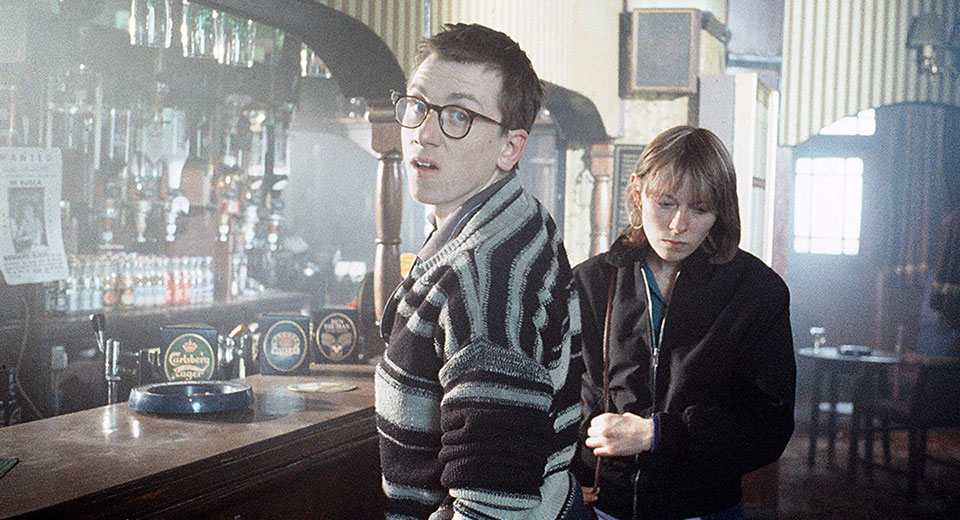
Unavoidable austerity and inescapable tedium grinds two generations of a working-class English household into a pasty pulp in Mike Leigh’s 1983 television drama Meantime, screening on 16mm tonight at the Museum of Modern Art for their Television Movies survey. For the Pollock family – two frustrated grown sons and their exhausted, impotent parents Mavis and Frank – daily life is little more than a waking death of indefinite duration and mounting indignity. Hours spent queuing for food stamps and unemployment benefits are broken up by brief spurts of temporary solace: at the local pub, bingo parlor, or parked in front of the television with cigarette in hand, until another week passes and the pugatorial cycle begins afresh.
Stuffed within the sprawl of their outer-London housing project are a thousand tiny, smoke-filled flats, each with their own Pollock family lying in wait for an end to the monotony, be it natural or man-made. The spare kitchen-sinker made stars of Tim Roth and Gary Oldman, whose respective performances as painfully shy younger son Colin and his obnoxious skinhead companion Coxy embody two different – but no less devastating – possible fates for society’s surplus man-children. So long as employment endures as the marker of personhood and value, Leigh argues, the meagre charities of a welfare state will always come up short. Swap out the period dress and Brutalist architecture for something more contemporary, and you’d be shocked at how little has changed in 37 years. Watching Meantime, I was reminded of another old, balding Jewish rabble-rouser, whose pro-labor rallying cries have grown louder in the years since Thatcher and Regan had their way with the social contract. Hope may be lost for the Pollockses and their neighbors, but perhaps there’s a little left for the rest of us.


